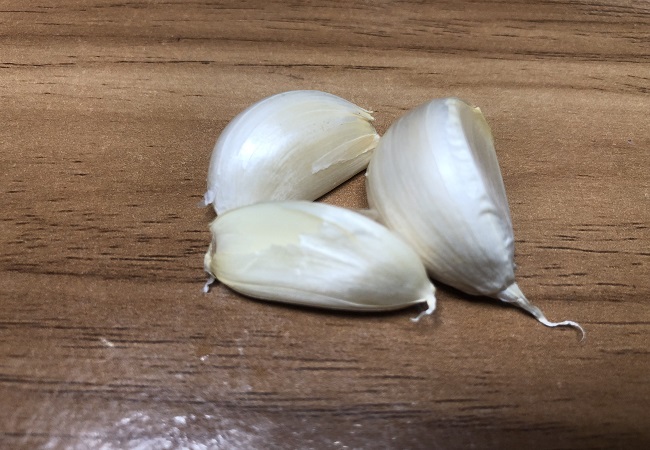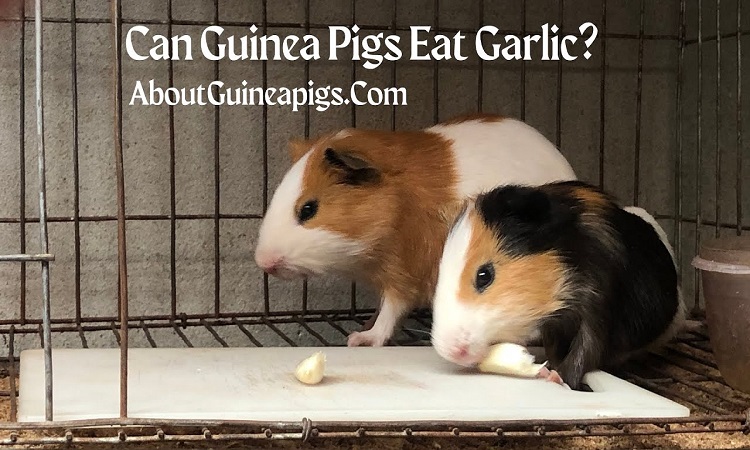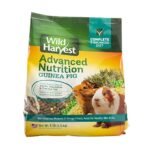Guinea pigs are delightful and charismatic pets that require careful consideration of their dietary needs. As a devoted guinea pig owner, it is essential to ensure their nutrition is well-balanced and appropriate. In this regard, exploring the compatibility of various food items with their delicate digestive systems is of utmost importance.
That is why I always tried different experiments with my guinea pigs Max & Maya. Today I am going to do another experiment with them. I want to know that Can guinea pigs eat garlic? I thought that guinea pigs and garlic will not be a good combination. That’s why I have done experiments.
Now I want to share my experiment result with all of you. By delving into the potential benefits and risks associated with feeding garlic to guinea pigs, we can gain valuable insights into whether this pungent herb should be included in their diet.
Guinea pigs are cherished for their adorable appearance and friendly nature, captivate the hearts of pet owners around the world. Caring for these small furry companions involves providing them with a healthy and balanced diet to support their overall well-being.
While guinea pigs primarily thrive on a diet rich in hay, fresh vegetables, and pellets formulated specifically for their nutritional needs, it is natural for owners to question the suitability of other foods, such as garlic. Garlic, is known for its distinct flavor and numerous health benefits for humans, but raises the question, do guinea pigs eat garlic?
This essay explores the potential implications of incorporating garlic into a guinea pig’s diet, considering factors such as their delicate digestive systems, dietary requirements, and possible health benefits or risks associated with this aromatic herb. By examining the available information, I can make informed decisions regarding the inclusion of garlic in the diet of these beloved pets.
Contents
Can Guinea Pigs Eat Garlic? An Experimental Analysis
Guinea pigs are adorable and beloved pets known for their unique dietary requirements. As a responsible guinea pig owner, it is essential to explore various food options to ensure their nutritional needs are met. This article investigates the suitability of garlic as a dietary component for guinea pigs.
The experiment involves observing the behavior of two guinea pigs, Max and Maya, when offered a small quantity of garlic. The results of this experiment, along with a discussion on the health benefits of garlic, will help determine whether garlic can be included in the guinea pigs’ diet.
Experiment:
For this experiment, 3 grams of garlic were offered to Max and Maya. The guinea pigs initially exhibited a cautious response to the garlic, detecting its strong scent. They moved away from it, indicating a potential aversion to the smell. However, they soon approached the garlic again and began consuming it.
Ultimately, the guinea pigs ate 0.75 grams of garlic, leaving 2.25 grams uneaten. The guinea pig’s willingness to consume garlic in small quantities suggests a potential interest in this food item.
Results:
The experiment revealed that guinea pigs, such as Max and Maya, have a mild affinity for garlic. Although they exhibited initial hesitation due to its strong odor, they eventually consumed a portion of the garlic.
Max and Maya consumed approximately 25% of the offered garlic, indicating a preference for smaller quantities. It is worth noting that guinea pigs are herbivores and have specific dietary requirements, so any new food should be introduced gradually and in moderation.
I provided a video for you. If you watch this video then you can learn better and clearly their behavior while they eat garlic.
Garlic Consumed Report:
|
Descriptions |
Amounts To Eat (Max & Maya) |
|
Was Given To Eat |
3 Grams |
|
They Ate |
0.75 Grams |
|
Percent Ate (%) |
25% |
|
Remains |
2.25 Grams |
Discussion:
While the experiment showed that guinea pigs can consume garlic, it is important to exercise caution when incorporating it into their diet. Garlic belongs to the Allium family, which also includes onions, chives, and leeks.
Allium plants contain a compound called thiosulfate, which can be harmful to guinea pigs in large amounts. Therefore, it is crucial to offer garlic to guinea pigs in small quantities, just as observed in this experiment.
Note: There are many other experiments I have already done with my guinea pigs Max & Maya such as can guinea pigs eat potato peels, red potato, lemon leaves, dried mango, pineapple core, and more. If you are interested to know more about diet requirements for your loving guinea pigs then you can also read those articles.
Are Garlic Good for Guinea Pigs?
One thing you should remember that, Garlic is not toxic to guinea pigs, but it is not a recommended part of their diet. While garlic does have potential health benefits for guinea pigs when consumed in small amounts, it is important to exercise caution when considering whether garlic is good for guinea pigs.
Here are some key points to consider:
Nutritional Content:
Garlic contains certain nutrients, including vitamin C and antioxidants, that can be beneficial for guinea pigs. Vitamin C is essential for their overall health, as guinea pigs cannot produce it naturally.
However, it’s worth noting that garlic is not a primary source of these nutrients, and guinea pigs can obtain them from other foods that are more suitable for their dietary needs.
Thiosulfate Content:
Garlic belongs to the Allium family, along with onions, chives, and leeks. Allium plants contain a compound called thiosulfate, which can be harmful to guinea pigs in large quantities.
Thiosulfate can cause damage to their red blood cells, leading to a condition known as hemolytic anemia. It is crucial to offer garlic in small, controlled amounts to avoid potential negative effects.
Digestive Sensitivity:
Guinea pigs have sensitive digestive systems, and introducing new foods abruptly or in excessive amounts can disrupt their gastrointestinal health. Garlic, particularly in larger quantities, may cause digestive upset, including stomach discomfort, gas, or diarrhea. It is important to monitor your guinea pig’s response to garlic and any changes in their digestion.
Individual Sensitivity:
Each guinea pig may have a different tolerance or reaction to garlic. While some guinea pigs may tolerate small amounts of garlic without adverse effects, others may be more sensitive to its compounds. It is crucial to observe your guinea pig’s behavior and consult with a veterinarian if you have any concerns.
Health Benefits of Garlic for Guinea Pigs
While garlic should be offered to guinea pigs in moderation, it does possess certain potential health benefits when consumed in appropriate amounts.

Here are some of the health benefits associated with garlic for guinea pigs:
Vitamin C Source:
Garlic contains vitamin C, an essential nutrient for guinea pigs. Since guinea pigs cannot synthesize vitamin C on their own, it must be obtained through their diet. Adequate vitamin C intake is crucial for guinea pigs as it helps support their immune system, promotes wound healing, and assists in the production of collagen for healthy skin and connective tissues.
Antioxidant Properties:
Garlic contains antioxidants that help protect the body against oxidative stress caused by harmful free radicals. These antioxidants, such as allicin and sulfur compounds present in garlic, may have potential health benefits for guinea pigs by neutralizing free radicals and reducing cellular damage.
Potential Antibacterial and Antifungal Effects:
Garlic is known for its antimicrobial properties. Some studies suggest that garlic may have antibacterial and antifungal effects, which could contribute to maintaining a healthy digestive system in guinea pigs. However, it is important to note that further research is needed to determine the specific effects of garlic on guinea pig health.
Aromatic Stimulation:
The strong aroma of garlic may provide sensory stimulation for guinea pigs, enhancing their appetite and promoting overall enjoyment of their meals. This can be particularly beneficial for guinea pigs with a decreased appetite or picky eating habits.
It is essential to reiterate that while garlic may offer potential health benefits for guinea pigs, it should be offered in small quantities and as part of a varied and balanced diet. Excessive consumption of garlic or introducing it abruptly into the diet may lead to digestive upset or other adverse effects.
How Common is Garlic Poisoning in Guinea Pigs?
Garlic poisoning in guinea pigs is relatively rare, primarily because most guinea pigs instinctively avoid consuming large quantities of garlic due to its strong odor and taste. However, it’s important to note that garlic does contain compounds, such as thiosulfate, that can be toxic to guinea pigs in excessive amounts.
While there have been sporadic reports of garlic toxicity in guinea pigs, these cases are typically associated with ingestion of significant quantities of garlic or long-term exposure to garlic-rich diets. Guinea pigs are generally more sensitive to thiosulfate toxicity compared to other animals.
To minimize the risk of garlic poisoning in guinea pigs, it is crucial to offer garlic in controlled, small quantities, if at all. Providing a varied and balanced diet that primarily consists of hay, fresh vegetables, and guinea pig-specific pellets is generally recommended to meet their nutritional needs.
If you suspect your guinea pig has ingested a potentially toxic amount of garlic or is showing signs of illness after consuming garlic, it is important to seek immediate veterinary care. A veterinarian will be able to evaluate the situation, provide appropriate treatment, and offer guidance tailored to your guinea pig’s specific condition.
[su_note note_color=”#f9e5e5″ text_color=”#333333″ radius=”3″ class=””]Remember, prevention is key, and it is advisable to consult with a veterinarian before introducing any new foods or herbs into your guinea pig’s diet to ensure their safety and well-being.[/su_note]
Frequently Asked Questions
Q: Can guinea pigs eat wild garlic?
A: While guinea pigs can eat a variety of vegetables and herbs, including some types of edible garlic, it is important to note that wild garlic, also known as wild onion or Allium vine ale, should not be fed to guinea pigs.
Wild garlic contains compounds that are potentially toxic to guinea pigs, such as thiosulfate, which can cause digestive upset and other health issues. It is best to stick to safe and commercially available vegetables and herbs specifically recommended for guinea pigs to ensure their well-being.
Q: How often can guinea pigs eat garlic?
A: Guinea pigs should only eat garlic in very small quantities and infrequently. Due to the potential risks associated with garlic, it is generally recommended to limit garlic consumption to rare occasions, if at all.
Offering garlic as an occasional treat or flavor enhancer is sufficient. The primary focus should be on providing a well-balanced diet consisting of hay, fresh vegetables, and guinea pig-specific pellets that meet their nutritional needs.
Q: Can my guinea pigs eat garlic?
A: While your guinea pigs can consume very small amounts of garlic, it is generally not recommended to include garlic in their regular diet. Garlic contains compounds that can be harmful to guinea pigs in larger quantities, such as thiosulfate, which can cause digestive upset and other health issues.
It is best to prioritize a balanced diet of hay, fresh vegetables, and guinea pig-specific pellets to meet their nutritional needs.
Q: Do guinea pigs like garlic?
A: Guinea pigs may exhibit a mild interest in the aroma of garlic, but their preference for garlic can vary among individuals. While some guinea pigs may show curiosity and may even consume small amounts of garlic, it is important to note that the strong smell and taste of garlic can also deter them.
Each guinea pig may have different tastes and preferences when it comes to food. It is essential to introduce new foods cautiously and monitor their response to ensure their well-being.
Q: Are guinea pigs allowed to eat garlic?
A: While guinea pigs can technically eat very small amounts of garlic, it is generally not recommended to include garlic in their diet. Garlic contains compounds, such as thiosulfate, that can be harmful to guinea pigs in larger quantities.
The potential risks associated with garlic outweigh any potential benefits. It is best to focus on providing a balanced diet of hay, fresh vegetables, and guinea pig-specific pellets to meet their nutritional needs.
Q: Are Guinea Pigs Allergic to Garlic?
A: While allergic reactions in guinea pigs are relatively uncommon, it is possible for some guinea pigs to be allergic to garlic. Allergies can vary among individuals, and certain guinea pigs may exhibit adverse reactions to the compounds found in garlic.
Symptoms of an allergic reaction may include skin irritation, itching, swelling, or respiratory issues. If you suspect that your guinea pig is experiencing an allergic reaction to garlic or any other food, it is important to consult with a veterinarian for proper diagnosis and guidance.
My Opinion
The experiment demonstrated that guinea pigs, such as Max and Maya, can consume small quantities of garlic. However, it is crucial to exercise caution and offer garlic in moderation due to the potential adverse effects of excessive thiosulfate consumption.
Guinea pig owners should consult with a veterinarian before introducing any new food to their pets’ diet. While garlic may provide certain health benefits, a well-balanced diet primarily consisting of hay, fresh vegetables, and guinea pig-specific pellets remains crucial for their overall health and well-being.










